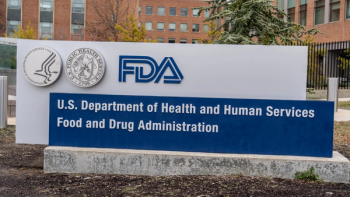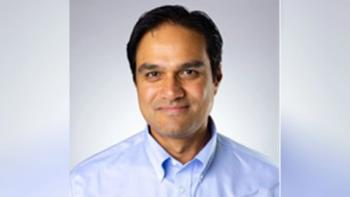
Medicare drug benefit aims to improve coverage for seniors
But prescription drug plan could be a hard pill to swallow.
Long-term care residents and other Medicare beneficiaries could soon be changing the way they access prescription drugs â at least if the Democratic and Republican leaders get their way.
And while both parties are pushing for a Medicare drug benefit that will increase coverage for the nation's senior citizens, their proposals have come up against mixed reviews.
"Not everybody is rallying behind the efforts," noted Alan Holmer, president and CEO of the Pharmaceutical Research and Manufacturers of America, Washington. "There is a definite need for improved access to prescription medicines, but many people question the government's role in that process."
More specifically, they are concerned that a "one-size-fits-all" plan imposed by the government could impede, rather than improve, coverage to seniors. PhRMA, though it strongly supports strengthening and modernizing of Medicare, including expanded drug coverage, believes there is a better way to deliver a drug benefit.
"The key is to find a solution that strengthens and improves the Medicare program, giving older Americans good choices between different kinds of competing health plans," Holmer added. "We need more choices for seniors, and more access and coverage. What we don't need is more restrictions, more bureaucracy, more government red tape."
A number of organizations, including PhRMA, favor a private-sector approach to a Medicare prescription drug benefit â the same angle taken by Texas governor and Republican presidential candidate George W. Bush.
According to that approach, seniors would be offered private sector prescription drug plans, while low-income seniors would be provided with financial assistance to help offset the costs of the plans. Such a strategy wouldn't be much of a stretch for private-pay long-term care residents who already can pick their own drug plans. It would, however, open new doors for the many seniors who currently aren't covered under Medicare.
"Members of Congress enjoy access to private prescription drug plans that offer them real choices. Seniors should have that option, too," noted Tim Ryan, executive director of Citizens for Better Medicare, Washington. "We believe that helping the one-third of seniors with no coverage is the best answer."
The Democratic leadership, however, thinks the million dollar budget surplus could make a pharmaceutical benefit a reality for everyone who qualifies for Medicare. According to President Clinton and Vice President Al Gore, such a plan would "prevent seniors from having to choose between fighting infection and fighting hunger."
Under the plan, Medicare recipients would pay a $24 monthly premium in 2002, increasing to $44 by 2008. In turn, the government would cover half the cost of drugs up to a limit beginning at $1,000 and eventually rising to $2,500.
Ironically, the Democratic plan designed to help all Medicare beneficiaries isn't favored by many seniors, particularly those who already have prescription drug coverage.
In fact, a survey released by Citizens for Better Medicare found that more than 80% of seniors with prescription drug coverage would rather stick with the plan they have than opt for a blanket program.
"These numbers speak for themselves," said Bill McInterff, of Public Opinion Strategies, who conducted the survey. "It's startling to see seniors so clearly and unambiguously reject a program that is purported to help them."
A study conducted by PricewaterhouseCoopers found between 6 million and 9 million seniors could be effectively forced out of their private coverage if the Democratic proposal is enacted.
"Jeopardizing the good, private-sector coverage that millions of seniors have today is a sure-fire way to make a lot of seniors very angry," added Ryan.
"Rather than address the structural problems of Medicare and help the one-third of seniors who have no drug coverage, the Democratic leadership has decided to create a massive new entitlement," he continued.
Beyond that, those in favor of a private-sector plan fear that a government-run program would lead to price controls, restrictions on drug access and ultimately impede future pharmaceutical research and development.
But a number of organizations believe any program designed to improve Medicare prescription drug coverage is a good idea. The Washington-based American Association for Homes and Services for the Aging, for example, has long been in favor of adding a prescription drug plan to the Medicare program, though it hasn't openly taken sides.
Not only would a Medicare drug benefit allow for better negotiation for prescription drug pricing, "it would also provide assisted living residents and a good section of 202 housing residents with better drug coverage," explained AAHSA spokesperson Robert Greenwood. "A large percentage of these people's income is currently going to pay for prescription drugs. We're in favor of any plan that makes coverage more affordable."
AAHSA isn't alone. The Assisted Living Federation of America, Washington, also supports any proposal aimed at making seniors more self-sufficient.
"Although Medicare doesn't affect assisted living, per se, a prescription drug benefit certainly would. And we wholeheartedly support that concept," said ALFA spokesperson Whitney Redding. "Our goal has always been to help seniors get more affordable healthcare coverage, and we believe a prescription drug benefit is a big part of that equation. It's less important to us whose plan, as long as the plan enacted is a solid one."
Even so, some are speculating that the Democratic proposal could pick up speed, particularly in the wake of the death of Sen. Paul Coverdell (R-GA) that resulted in a Democratic replacement.
"This is an expensive benefit, so it's still a big question mark whether or not this thing will get passed at all. But the change in the Senate where Sen. Coverdell was replaced by a Democrat could be enough to tip the scales," Greenwood added. "Only time will tell." PR
Newsletter
Lead with insight with the Pharmaceutical Executive newsletter, featuring strategic analysis, leadership trends, and market intelligence for biopharma decision-makers.



